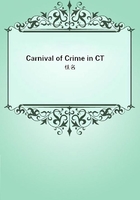Further, as regards the direct participation of the members of the leisure class in the furtherance of knowledge, the canons of reputable living act to throw such intellectual interest as seeks expression among the class on the side of classical and formal erudition, rather than on the side of the sciences that bear some relation to the community's industrial life. The most frequent excursions into other than classical fields of knowledge on the part of members of the leisure class are made into the discipline of law and the political, and more especially the administrative, sciences. These so-called sciences are substantially bodies of maxims of expediency for guidance in the leisure-class office of government, as conducted on a proprietary basis. The interest with which this discipline is approached is therefore not commonly the intellectual or cognitive interest simply. It is largely the practical interest of the exigencies of that relation of mastery in which the members of the class are placed. In point of derivation, the office of government is a predatory function, pertaining integrally to the archaic leisure-class scheme of life. It is an exercise of control and coercion over the population from which the class draws its sustenance. This discipline, as well as the incidents of practice which give it its content, therefore has some attraction for the class apart from all questions of cognition. All this holds true wherever and so long as the governmental office continues, in form or in substance, to be a proprietary office; and it holds true beyond that limit, in so far as the tradition of the more archaic phase of governmental evolution has lasted on into the later life of those modern communities for whom proprietary government by a leisure class is now beginning to pass away.
For that field of learning within which the cognitive or intellectual interest is dominant -- the sciences properly so called -- the case is somewhat different, not only as regards the attitude of the leisure class, but as regards the whole drift of the pecuniary culture. Knowledge for its own sake, the exercise of the faculty of comprehensive without ulterior purpose, should, it might be expected, be sought by men whom no urgent material interest diverts from such a quest. The sheltered industrial position of the leisure class should give free play to the cognitive interest in members of this class, and we should consequently have, as many writers confidently find that we do have, a very large proportion of scholars, scientists, savants derived from this class and deriving their incentive to scientific investigation and speculation from the discipline of a life of leisure. Some such result is to be looked for, but there are features of the leisure-class scheme of life, already sufficiently dwelt upon, which go to divert the intellectual interest of this class to other subjects than that causal sequence in phenomena which makes the content of the sciences.
The habits of thought which characterize the life of the class run on the personal relation of dominance, and on the derivative, invidious concepts of honor, worth, merit, character, and the like. The casual sequence which makes up the subject matter of science is not visible from this point of view. Neither does good repute attach to knowledge of facts that are vulgarly useful.
Hence it should appear probable that the interest of the invidious comparison with respect to pecuniary or other honorific merit should occupy the attention of the leisure class, to the neglect of the cognitive interest. Where this latter interest asserts itself it should commonly be diverted to fields of speculation or investigation which are reputable and futile, rather than to the quest of scientific knowledge. Such indeed has been the history of priestly and leisure-class learning so long as no considerable body of systematized knowledge had been intruded into the scholastic discipline from an extra-scholastic source. But since the relation of mastery and subservience is ceasing to be the dominant and formative factor in the community's life process, other features of the life process and other points of view are forcing themselves upon the scholars.
The true-bred gentleman of leisure should, and does, see the world from the point of view of the personal relation; and the cognitive interest, so far as it asserts itself in him, should seek to systematize phenomena on this basis. Such indeed is the case with the gentleman of the old school, in whom the leisure-class ideals have suffered no disintegration; and such is the attitude of his latter-day descendant, in so far as he has fallen heir to the full complement of upper-class virtues. But the ways of heredity are devious, and not every gentleman's son is to the manor born. Especially is the transmission of the habits of thought which characterize the predatory master somewhat precarious in the case of a line of descent in which but one or two of the latest steps have lain within the leisure-class discipline. The chances of occurrence of a strong congenital or acquired bent towards the exercise of the cognitive aptitudes are apparently best in those members of the leisure class who are of lower class or middle class antecedents -- that is to say, those who have inherited the complement of aptitudes proper to the industrious classes, and who owe their place in the leisure class to the possession of qualities which count for more today than they did in the times when the leisure-class scheme of life took shape. But even outside the range of these later accessions to the leisure class there are an appreciable number of individuals in whom the invidious interest is not sufficiently dominant to shape their theoretical views, and in whom the proclivity to theory is sufficiently strong to lead them into the scientific quest.















